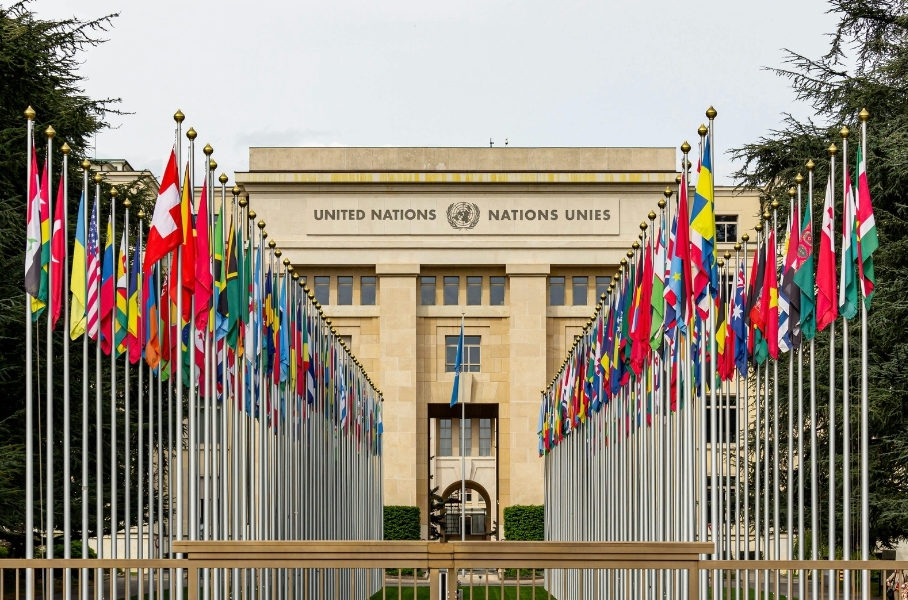
The Value of an Arts Degree in the 21st Century
Posted by
The practical parent questioning the idealistic teenager’s degree choice is a tale as old as time. Often, a well-meaning parent’s advice is to be sensible, think about job security, and pursue a degree that has an obviously mapped-out career path.
However, in a world where the economic climate is more uncertain than ever, and artificial intelligence is changing human roles in the workforce, traditional advice often leads to a dead end. The arts degree, however, continues to offer benefits that can be even more sought after in the 21st century.
The first step in understanding the value of an arts degree is dismantling the stereotype of the starving artist. Not a difficult feat when you dive into the research on the subject. According to a study by Georgetown University, degrees from top liberal arts colleges pay off just as much as degrees from big research universities in the long run.
It’s not just about the bottom line, though. An arts degree isn’t just about getting a job; it’s about becoming a well-rounded human. Arts degrees build a strong foundation, sculpting critical thinking skills that help you untangle any problem, research like a pro and express yourself with clarity.
The college experience with an arts degree is also often superior — think intimate-classroom settings and collaborative learning over packed classes with a professor you’ll never meet.
You’ll explore different cultures, develop empathy and gain a unique perspective that sets you apart. Whether you’re a future CEO, social- justice warrior or tech whiz, an arts degree equips you with the critical thinking, creativity and communication skills you need to thrive in a rapidly changing job force.
Arts Degrees Build a Strong Foundation
Everyone goes to college with an eye toward preparing for their career. The secret that no one tells you, however, is that you learn much more than how to join the workforce as you make your way from the 101s all the way to advanced senior-level courses.
Arts degrees are the basis of a strong foundation that can be built upon both during your college career and after. They allow (and demand) students to develop the rigorous discipline necessary for adhering to project timelines and adopting the skills and processes necessary to make their ideas and visions take shape.
Not only does this discipline help meet deadlines, but it also prepares individuals for future challenges, more so than the linear structure of traditional subject learning. The research-intensive nature of arts programs also molds students with strong analytical and critical-thinking skills.
From the first day of class, art students are researching and taking into account historical sources before synthesizing them into their own work. These research skills are highly transferable to many career paths. That’s not the only foundational (and transferable) skill that students learn on their way to an arts degree, though.
“Summed up, the one transferable skill for me would be ‘know thyself’,” said Julian Zabalbeascoa, associate director of Honors Experiential Learning Opportunities and Communication at Lowell Honors College at the University of Massachusetts. “An invaluable skill for work, but more importantly for life. The arts, along with the creation and study of them, are what can get you there.”
Arts Degrees Make for a Fantastic College Experience
The typical student spends at least four years in undergraduate, with an average tuition cost of $19,806 per year. Students and parents normally have their eyes on future ROI as it relates to the job market, but let’s be honest — for that amount of money, the college experience should be fabulous. This is another area in which an arts degree shines.
Arts courses and classes often foster an incredibly close-knit community, thanks to the intimate setting and smaller class sizes. You won’t find much amphitheater anonymity here — instead, you’ll find engaged students in small classes receiving lots of personalized attention.
Not only does this make for happier students, but it also encourages collaboration and teamwork, an invaluable preparation for the real world.
Arts Degrees Mold Versatile, Creative Humans
Nelson Mandela famously said, “Education is the most powerful weapon which you can use to change the world.”
Higher education helps teenagers transition into adults, and an arts degree is especially effective in molding them into humans who can think critically and creatively. Arts education is known for fostering critical thinking, analytical skills and the ability to interpret complex information.
Studies suggest these skills are highly transferable to various professional fields, along with the adaptability and flexibility that go hand-in-hand with an interdisciplinary learning environment. That adaptability that this type of learning fosters is a major asset in today’s job market.
Creativity and innovation are two other hallmarks of an art degree. They are also skills that are increasingly recognized as essential, in sectors from technology to health care. Add to that the communication and collaboration that arts programs foment among their majors, and you get a package of skills that could be crucial in any workplace.
Arts Degrees Have a Great Outcome in the Workforce
Think artists have no career prospects? Think again. The studies show that once arts graduates settle into a chosen career path, they achieve career success and job satisfaction comparable to graduates from other disciplines. The diversity from which they have to choose, by the way, is unparalleled — art majors meet with success everywhere, in fields ranging from advertising, design, education, marketing, media and technology.
Don’t believe it? Drop the stereotypes and take a look at the numbers. Creative higher education performs as well or better than many other specific subjects on multiple measures. When controlling for socioeconomic factors, there is no statistical difference in the effect on average earnings of those who study a creative subject and those who pursue degrees in biology, languages or psychology.
“The assumed viability or nonviability of a degree should, ideally, not be the determining factor for a student,” said Zabalbeascoa. “The American economy does not seem to be in harmony with the society it should be in service to. Your life is yours and, hopefully, it is long. What a shame then to allow a manipulated and skewered economy to dictate the way in which you will spend the majority of your working life.”
The wide range of career options available to arts graduates makes an art degree extremely attractive. While the job market may feel challenging — nowadays, it is for everyone — changes in technology, such as the advent of artificial intelligence, make for creative, visionary thinking that arts majors learn as an invaluable career skill. The demand for creative skills can only rise as a part of the human experience that machines cannot replicate.
Arts Degrees Should Not Be Underestimated
In an uncertain world, we should all be encouraging teens to consider their passions and potential when choosing a career path. “If the arts are what stir you, make you come alive, better allow you to be in service of others, provide you with a better and more vivifying sense of the world and your place in it and allow you to confront with greater resolve the myriad problems facing us, why would you waste your one sip of life by pursuing a degree that this imbalanced economy deems a sure bet?” said Zabalbeascoa.
Indeed, the value of an arts degree may not be quite as quantifiable, but one thing is certain — an arts education has major long-term benefits in shaping a fulfilling and successful future.
Blog Categories
- Career Advice
- College Admissions
- Colleges & Universities
- Financial Aid and Scholarships
- For Counselors
- For Parents
- For Students
- Gap Years
- Mental Health and Wellness
- Online Learning
- Performing and Visual Arts
- STEM Majors and More
- Summer Programs
- Teen Volunteering
- Trade & Vocational Schools
- Tutoring & Test Prep

Organization with listings on TeenLife? Login here
Register for Free
We’re here to help you find your best-fit teen-centered academic and enrichment opportunities.
Forgot Password
"*" indicates required fields







